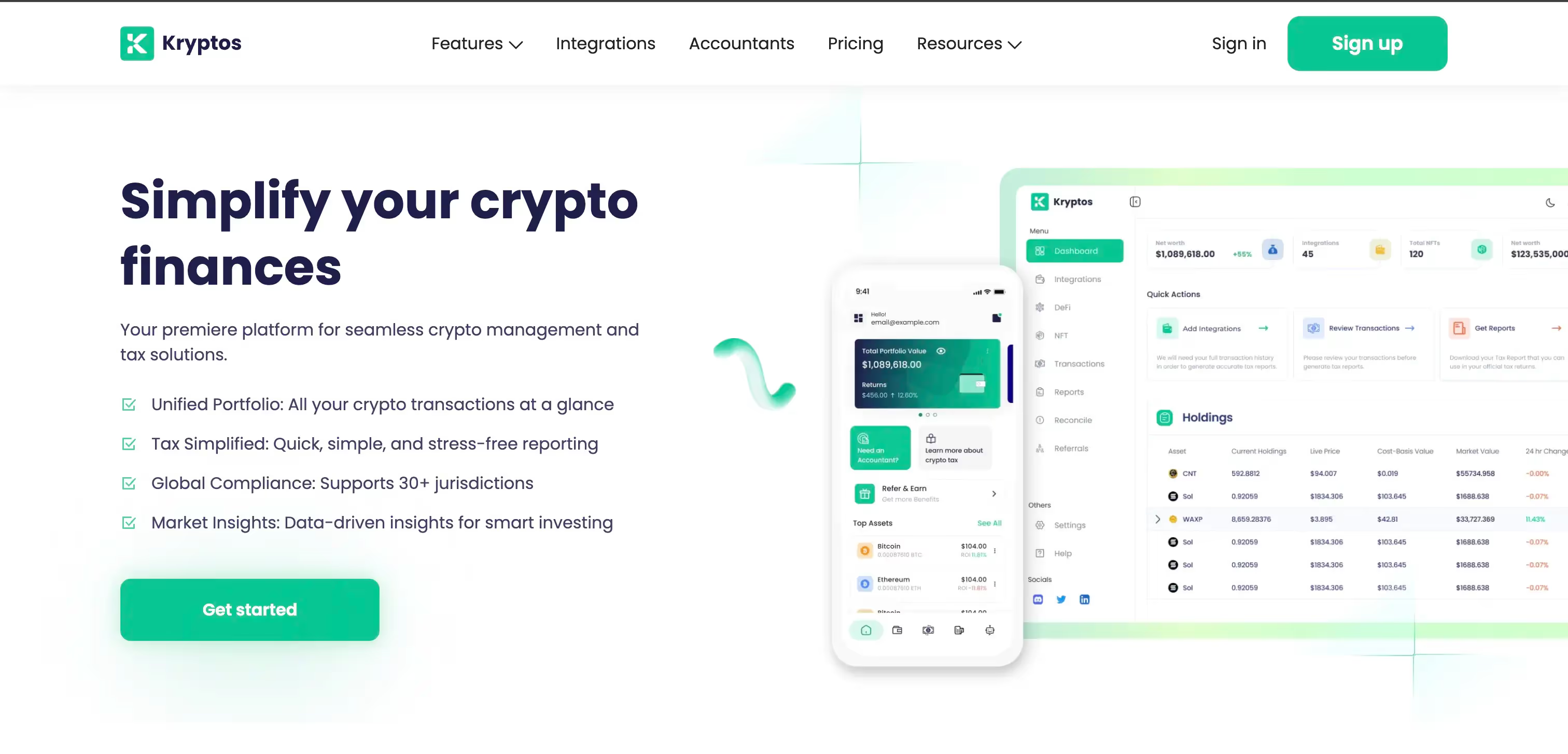
Turkey is making significant strides in the cryptocurrency domain. And, the 2024 Turkish Presidential Annual Programme, unveiled on October 25, highlights the nation's ambition to finalize its cryptocurrency regulations by the close of 2024.
Here’s everything you need to know about Turkey’s upcoming cryptocurrency regulatory framework.
What is The Article 400.5?
The comprehensive released document, spanning nearly 500 pages, includes Article 400.5, which sheds light on the plan to pinpoint cryptocurrency assets that might be eligible for relevant taxation. Furthermore, entities dealing with cryptocurrency assets, like exchanges, will soon be recognized with a clear legal status.
While the document remains tight-lipped about specific impending constraints, its release is a clear indication of Turkey's resolve to oversee the burgeoning cryptocurrency market within its territory.
By introducing a clear legal classification for cryptocurrency assets and emphasizing taxation, the Turkish government is signaling its intent to create transparency and responsibility in this evolving industry.
A Glimpse into the Past
A study conducted in 2022 revealed that Turkey secured the second spot globally, with 5.5% of its population showing curiosity about digital currencies.
This interest was further amplified against the backdrop of the Turkish lira's inflation woes. In 2021 alone, the nation saw an elevenfold surge in cryptocurrency adoption.
This growing affinity for digital currencies is largely attributed to waning confidence in conventional financial systems and an appetite for alternative investment avenues.
Cryptocurrency platforms, such as Thodex, played a pivotal role in this trend by offering easy access and convenience, drawing more participants to the market. It's worth noting that Thodex faced its own set of challenges, with its former CEO, Faruk Fatih Özer, being handed a jail sentence spanning 11,196 years in September 2023 following the platform's abrupt downfall in 2021.
What’s in the Future?
Turkey's Central Bank wrapped up the initial testing phase of the digital lira, its own digital currency, in December 2022.
Further trials are slated to continue until 2024. President Recep Tayyip Erdoğan has been a vocal supporter of the digital lira project, although a full-scale transition to a digital currency is still under consideration.
Simplify Crypto Taxes with Kryptos
Crypto tax software like Kryptos takes out the stress of staying up-to-date with all the latest tax guidelines and allows you to calculate your crypto taxes accurately in just a few minutes.
Simply import your transactions from 5000+ DeFi protocols, 100+ wallets and exchanges, and support NFTs.

The app updates all your tax liabilities in a single dashboard and allows you to save taxes while staying compliant with the latest tax laws.
Sign Up Now for FREE simplify your crypto taxes!
FAQs
1. What is the significance of the 2024 Turkish Presidential Annual Programme in the context of cryptocurrency?
The 2024 Turkish Presidential Annual Programme, released on October 25, highlights Turkey's commitment to establish a comprehensive cryptocurrency regulatory framework by the end of 2024.
2. What insights does Article 400.5 of the document provide?
Article 400.5 delves into the research that will be undertaken to identify cryptocurrency assets eligible for taxation. It also indicates that entities like cryptocurrency exchanges will soon have a defined legal status in Turkey.
3. How has Turkey's relationship with cryptocurrency evolved over the years?
Turkey witnessed a significant surge in cryptocurrency interest and adoption in recent years. A 2022 study revealed that 5.5% of its population was curious about digital currencies. The nation also experienced an elevenfold increase in cryptocurrency usage in 2021, driven by factors like inflation of the Turkish lira and the rise of platforms like Thodex.
4. What are the future prospects for the digital lira, Turkey's own digital currency?
The Central Bank of Turkey completed the initial testing phase of the digital lira in December 2022. While further trials are expected to continue until 2024, President Recep Tayyip Erdoğan has shown strong support for the initiative, though a complete transition to the digital currency is still under deliberation.
All content on Kryptos serves general informational purposes only. It's not intended to replace any professional advice from licensed accountants, attorneys, or certified financial and tax professionals. The information is completed to the best of our knowledge and we at Kryptos do not claim either correctness or accuracy of the same. Before taking any tax position / stance, you should always consider seeking independent legal, financial, taxation or other advice from the professionals. Kryptos is not liable for any loss caused from the use of, or by placing reliance on, the information on this website. Kryptos disclaims any responsibility for the accuracy or adequacy of any positions taken by you in your tax returns. Thank you for being part of our community, and we're excited to continue guiding you on your crypto journey!
| Step | Form | Purpose | Action |
|---|---|---|---|
| 1 | 1099-DA | Reports digital asset sales or exchanges | Use to fill out Form 8949. |
| 2 | Form 1099-MISC | Reports miscellaneous crypto income | Use to fill out Schedule 1 or C. |
| 3 | Form 8949 | Details individual transactions | List each transaction here. |
| 4 | Schedule D | Summarizes capital gains/losses | Transfer totals from Form 8949. |
| 5 | Schedule 1 | Reports miscellaneous income | Include miscellaneous income (if not self-employment). |
| 6 | Schedule C | Reports self-employment income | Include self-employment income and expenses. |
| 7 | Form W-2 | Reports wages (if paid in Bitcoin) | Include wages in total income. |
| 8 | Form 1040 | Primary tax return | Summarize all income, deductions, and tax owed. |
| Date | Event/Requirement |
|---|---|
| January 1, 2025 | Brokers begin tracking and reporting digital asset transactions. |
| February 2026 | Brokers issue Form 1099-DA for the 2025 tax year to taxpayers. |
| April 15, 2026 | Deadline for taxpayers to file their 2025 tax returns with IRS data. |
| Timeline Event | Description |
|---|---|
| Before January 1, 2025 | Taxpayers must identify wallets and accounts containing digital assets and document unused basis. |
| January 1, 2025 | Snapshot date for confirming remaining digital assets in wallets and accounts. |
| March 2025 | Brokers begin issuing Form 1099-DA, reflecting a wallet-specific basis. |
| Before Filing 2025 Tax Returns | Taxpayers must finalize their Safe Harbor Allocation to ensure compliance and avoid penalties. |
| Feature | Use Case Scenario | Technical Details |
|---|---|---|
| Automated Monitoring of Transactions | Alice uses staking on Ethereum 2.0 and yield farming on Uniswap. Kryptos automates tracking of her staking rewards and LP tokens across platforms. | Integrates with Ethereum and Uniswap APIs for real-time tracking and monitoring of transactions. |
| Comprehensive Data Collection | Bob switches between liquidity pools and staking protocols. Kryptos aggregates all transactions, including historical data. | Pulls and consolidates data from multiple sources and supports historical data imports. |
| Advanced Tax Categorization | Carol earns from staking Polkadot and yield farming on Aave. Kryptos categorizes her rewards as ordinary income and investment income. | Uses jurisdiction-specific rules to categorize rewards and guarantee compliance with local tax regulations. |
| Dynamic FMV Calculation | Dave redeems LP tokens for Ethereum and stablecoins. Kryptos calculates the fair market value (FMV) at redemption and during sales. | Updates FMV based on market data and accurately calculates capital gains for transactions. |
| Handling Complex DeFi Transactions | Eve engages in multi-step DeFi transactions. Kryptos tracks value changes and tax implications throughout these processes. | Manages multi-step transactions, including swaps and staking, for comprehensive tax reporting. |
| Real-Time Alerts and Updates | Frank receives alerts on contemporary tax regulations affecting DeFi. Kryptos keeps him updated on relevant changes in tax laws. | Observe regulatory updates and provide real-time alerts about changes in tax regulations. |
| Seamless Tax Reporting Integration | Grace files taxes using TurboTax. Kryptos integrates with TurboTax to import staking and yield farming data easily. | Direct integration with tax software like TurboTax for smooth data import and multi-jurisdictional reporting. |
| Investor Type | Impact of Crypto Tax Updates 2025 |
|---|---|
| Retail Investors | Standardized crypto reporting regulations make tax filing easier, but increased IRS visibility raises the risk of audits. |
| Traders & HFT Users | To ensure crypto tax compliance, the IRS is increasing its scrutiny and requiring precise cost-basis calculations across several exchanges. |
| Defi & Staking Participants | The regulations for reporting crypto transactions for staking rewards, lending, and governance tokens are unclear, and there is a lack of standardization for decentralized platforms. |
| NFT Creators & Buyers | Confusion over crypto capital gains tax in 2025, including the taxation of NFT flips, royalties, and transactions across several blockchains. |
| Crypto Payments & Businesses | Merchants who take Bitcoin, USDC, and other digital assets must track crypto capital gains for each transaction, which increases crypto tax compliance requirements. |
| Event | Consequences | Penalties |
|---|---|---|
| Reporting Failure | The tax authorities can mark uncontrolled revenues and further investigate. | Penalty fines, interest on unpaid taxes and potential fraud fees if they are deliberately occurring. |
| Misreporting CGT | Misreporting CGT Error reporting profits or losses can trigger the IRS audit. | 20% fine on under -ported zodiac signs, as well as tax and interest. |
| Using decentralized exchanges (DEXs) or mixers without records | The IRS can track anonymous transactions and demand documentation. | Possible tax evasion fee and significant fine. |
| Disregarding Bitcoin mining tax liabilities | Mining reward is considered taxable income, and failure of the report can be regarded as tax fraud. | Further tax obligations, punishment and potential legal steps. |
| Foreign crypto holdings: Non-disclosure | Foreign-accepted crypto FATCA may be subject to reporting rules. | Heavy fines (up to $ 10,000 per fracture) or prosecution for intentional non-transport. |



